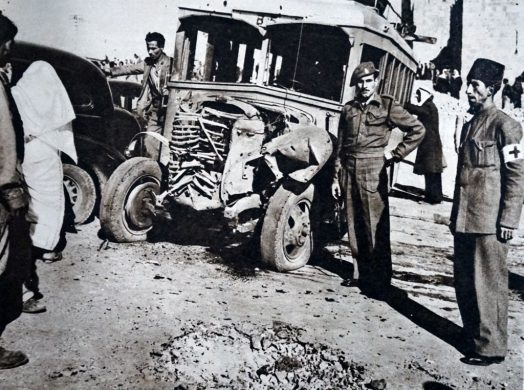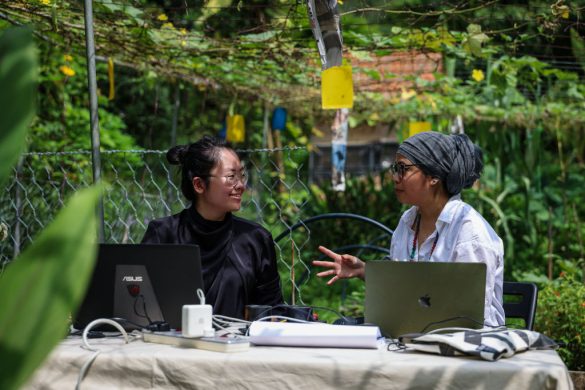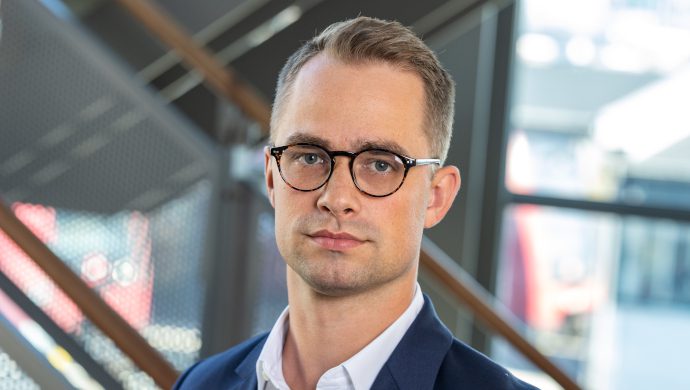Within three weeks after the tsunami disaster ravaged south and south-east Asia, the international donor community responded magnanimously by pledging an unprecedented 5,5 billion to 6 billion US dollar for emergency relief and reconstruction.
By a coincidence, says U.N. Special Envoy Stephen Lewis, the Global Fund on AIDS, Tuberculosis and Malaria received an identical amount of about 5,9 billion dollars in pledges from the donor community.
The difference between the two responses is that it took three years – not three weeks – to raise the same amount of money to combat a disease devastating millions of lives, says Lewis, who is U.N. Secretary-General Kofi Annans special envoy for HIV/AIDS in Africa.
While the response for the tsunami disaster was ”tremendously gratifying”, says Lewis, ”I do not think it is invidious to point out that there are six million people on the planet dying of AIDS, 4,1 million of them on the continent of Africa.”
– I do not begrudge a penny to south-east Asia. But what does it say about the world that can tolerate the slow and unnecessary death of millions, whose lives could be rescued with treatment? Lewis said.
Ann-Louise Colgan of the Washington-based Africa Action said the ”massive and rapid resource mobilisation for the tsunami victims stands in stark contrast to the minimal level of global attention and resources given to crises that are less visible but equally deadly in Africa, such as HIV/AIDS.”
Jan Egeland, U.N. Under-Secretary-General for Humanitarian Affairs, said Wednesday that he was still hopeful that the overwhelming generosity to the tsunami tragedy would eventually spill over into Africa.
– The jury is still out on this one,” he added. Egeland said he would make a ”dramatic presentation” to the U.N. Security Council later this week to point out ”how we failed in Africa but succeeded in the beaches of Asia”.
When the United Nations appealed for international assistance to resolve the humanitarian crisis in Darfur, Sudan, ”it took four months to receive any meaningful contributions,” he added.
Last week, Jeffrey Sachs, the director of the U.N. Millennium Project, was also critical of the double standards of the donor community.
He said that while the international community remained focused on the Indian Ocean disaster, ”the world continues to overlook the silent tsunami of death from malaria, which takes every month the number of people that died in the Asian tragedy.”
As of Thursday, the estimated number of deaths resulting from the tsunami tragedy has exceeded 283.000.
Every month, Sachs said, 150.000 children in Africa, if not more, were dying from malaria, ”a largely preventable and utterly treatable disease”.
Asked why there is apathy towards Africa, Rev. Gabriel Odima, president of the Africa Center for Peace and Democracy, told IPS:
– It is very sad that nearly 40 years after independence, most African countries are still behind, and the West has mounted no serious or effective policy campaign to end the suffering of African people.
Sachs pointed out that the issues of governance and corruption are being used as an excuse not to sustain or increase development assistance to African nations.
– The initiative was not about giving blank cheques, he said, adding: – What we are asking them is to put the money in countries which have a demonstrated track record – and take the right steps to make sure it was used effectively.
Lewis, who just returned from a tour of sub-Saharan Africa, singled out two countries, Malawi and Tanzania, as making ”tremendous efforts” in combating the AIDS epidemic.
He pointed out that Malawi was a nation ”obsessed” with fighting AIDS, and would not stop at anything in its preoccupation with the treatment of the scourge – ”even in the face of extremely limited resources”.
In the health care sector alone, Lewis said, there was an annual attrition rate (udskiftning) of 15 percent within the ministry of health, and a vacancy rate of about 67 percent.
The ministry of health had a total of 103 physicians in all facilities, and 10 districts in the country did not have a single government physician.
There were only five government pharmacists in the country. Based on the rough norm for Africa, he said, Malawi should have about 12.000 nurses, when there are just over 4.000.
In 2003, 500 nurses graduated; 70 of them ended up with the ministry of health while 108 left the country, 90 to Britain.
Similarly, he said, Tanzania has also done a tremendous job confronting the AIDS pandemic. What is hopeful, he added, is the sophistication and competence of the leadership and membership in both the ministry of health and the National AIDS Council, along with the full engagement of President Benjamin Mkapa.
– Everywhere we went, people were clamouring for treatment, Lewis said.
He also said that for whatever inexplicable reason, the western countries, which were so magnificently responsive to south and south-east Asia, ”bridle in the most unseemly way when it comes to Africa”.
And nowhere has this been more dramatically underscored than on the question of debt, he said. It took but days for the Paris Club of western creditors to espouse a debt moratorium for all the tsunami-affected countries, ”but time and time again – most recently just last fall” – the rich industrial nations refuse to cancel African debts.
– Even when they agree that it must be done, they can not agree on a formula which would make it possible.” Lewis said concluding:
– There is something indefensible at work, because it is not just south and south-east Asia. Iraq gets debt reduction, Africa festers in frustration.
Kilde: Inter Press Service og The Push Journal















